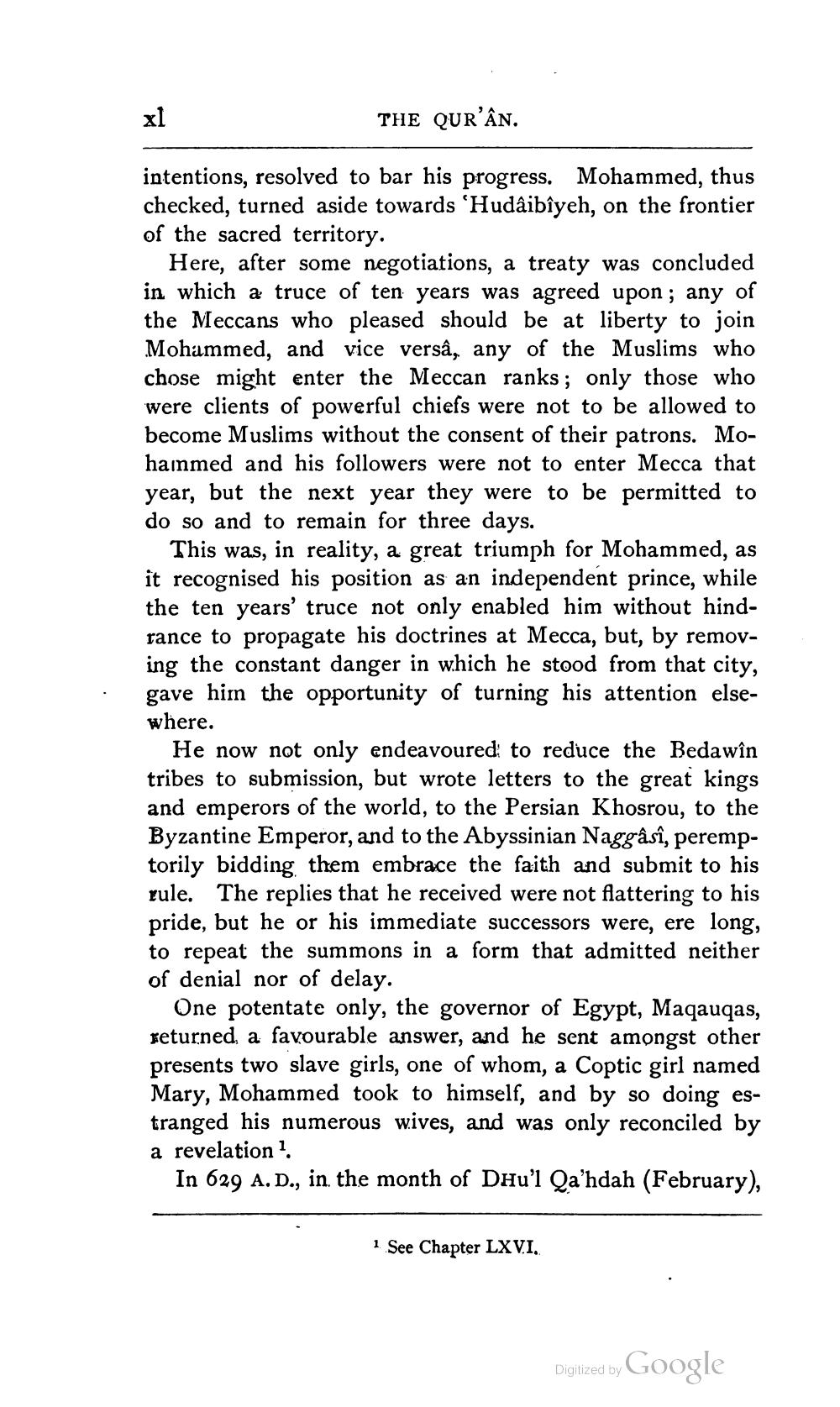________________
xl
THE QUR'ÂN.
intentions, resolved to bar his progress. Mohammed, thus checked, turned aside towards 'Hudâibîyeh, on the frontier of the sacred territory.
Here, after some negotiations, a treaty was concluded in which a truce of ten years was agreed upon; any of the Meccans who pleased should be at liberty to join Mohammed, and vice versâ, any of the Muslims who chose might enter the Meccan ranks; only those who were clients of powerful chiefs were not to be allowed to become Muslims without the consent of their patrons. Mohammed and his followers were not to enter Mecca that year, but the next year they were to be permitted to do so and to remain for three days.
This was, in reality, a great triumph for Mohammed, as it recognised his position as an independent prince, while the ten years' truce not only enabled him without hindrance to propagate his doctrines at Mecca, but, by removing the constant danger in which he stood from that city, gave him the opportunity of turning his attention elsewhere.
He now not only endeavoured to reduce the Bedawîn tribes to submission, but wrote letters to the great kings and emperors of the world, to the Persian Khosrou, to the Byzantine Emperor, and to the Abyssinian Naggâsî, peremptorily bidding them embrace the faith and submit to his rule. The replies that he received were not flattering to his pride, but he or his immediate successors were, ere long, to repeat the summons in a form that admitted neither of denial nor of delay.
One potentate only, the governor of Egypt, Maqauqas, returned a favourable answer, and he sent amongst other presents two slave girls, one of whom, a Coptic girl named Mary, Mohammed took to himself, and by so doing estranged his numerous wives, and was only reconciled by a revelation 1.
In 629 A. D., in the month of DHu'l Qa'hdah (February),
1. See Chapter LXVI.
Digitized by Google




